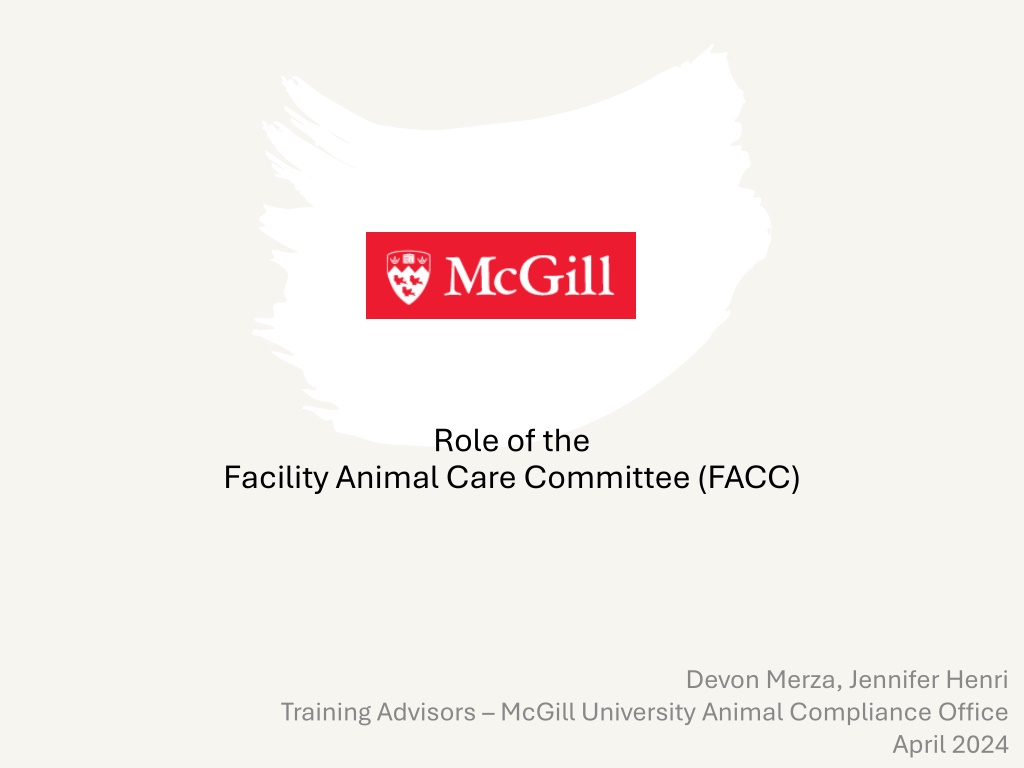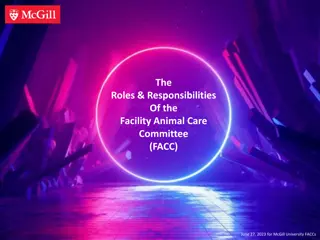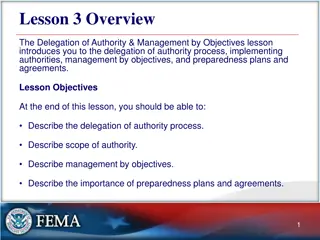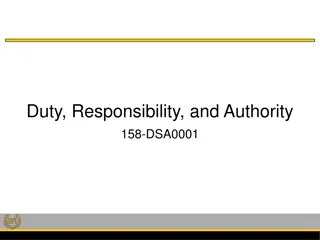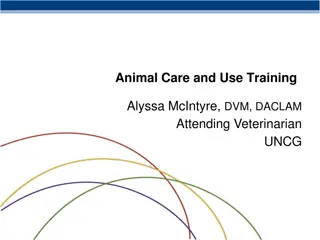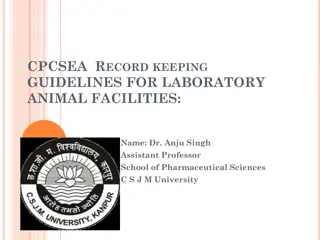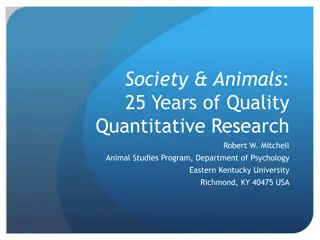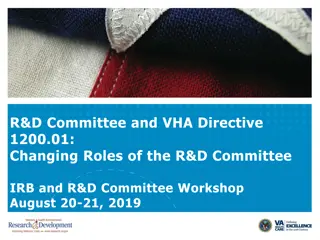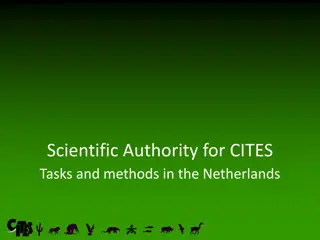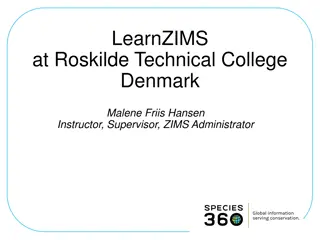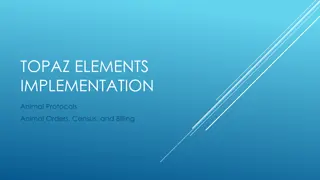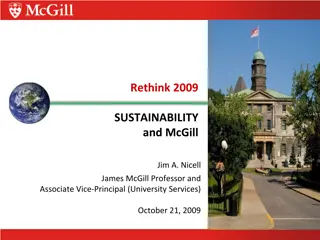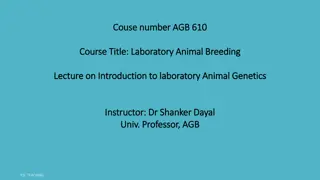Animal Care Committee Responsibilities and Authority at McGill University
The Facility Animal Care Committee (FACC) at McGill University plays a crucial role in ensuring appropriate care and use of animals in research settings. Comprising three FACCs across different campuses, their responsibilities include overseeing compliance, approving care practices, and addressing concerns. Supported by regulatory agencies, the FACC has authority to suspend procedures, euthanize animals, and withhold funds in cases of distress or non-compliance.
Download Presentation

Please find below an Image/Link to download the presentation.
The content on the website is provided AS IS for your information and personal use only. It may not be sold, licensed, or shared on other websites without obtaining consent from the author. Download presentation by click this link. If you encounter any issues during the download, it is possible that the publisher has removed the file from their server.
E N D
Presentation Transcript
Role of the Facility Animal Care Committee (FACC) Devon Merza, Jennifer Henri Training Advisors McGill University Animal Compliance Office April 2024
McGill Universitys Animal Care Program Vice-President (Research and Innovation) There are 3 FACCs for McGill University: Downtown Campus A (DOW A) Downtown Campus B (DOW B) Macdonald Campus (MAC) Animal Policy and Oversight Committee (APWOC) In addition, the Montreal Neurological Institute s (MNI) FACC Facility Animal Care Committee (FACC)
Institutional Responsibilities The responsibility does not lie solely on one individual Ensures Appropriate Structure of Animal Care and Use Program Compliance and Operations Support the roles and responsibilities of the FACCs by ensuring: Visibility Accessibility Support Staff Addressing Concerns Professor Martha Crago, Vice-President (Research and Innovation)
Main FACC Responsibilities Working in a respectful and inclusive environment where all perspectives are encouraged to contribute to ethical decision-making and resolving issues; Replacement, Reduction and Refinement; Approving husbandry and care practices in animal facilities; See the FACC Terms of Reference for full details.
Regulatory Agencies 1 2 3 4 5 Canadian Council on Animal Care (CCAC) National Farm Animal Care Council (NFACC) Policies, guidelines Standard Operating Procedures (SOPs); Environmental Health and Safety Office; Canadian Association for Laboratory Animal Medicine & OVMQ CFIA, Health Canada, CITES
FACCs Authority If unnecessary distress or pain is being experienced by an animal, and/ or regulatory policies or guidelines are not being followed, the FACC has the authority to: Stop procedures or animal use as well as suspend or terminate a protocol; Have an animal(s) euthanized; Withhold research funds; Revoke animal facility access privileges.
FACC Jurisdiction Campus animal facilities and research labs; Alternative Laboratory Procedure and Housing Areas (ALPHA) Protocols in which our researchers are involved (see Policy on Inter- Institution Collaborations).
Question If an AUP is found to be non- compliant, which course of action can a FACC take? a) Suspend or terminate a protocol b) Pay fine c) Withhold research funds d) Revoke animal facility access privileges
Question How often must FACCs inspect areas where animals are housed or where procedures on animals occur? a) As needed b) Twice a year c) At least once a year d) Only when the CCAC visits
Summary This Photo by Unknown Author is licensed under CC BY-NC
References APWOC Policy on the Study and Use of Animals (2022) CCAC Policy Statement for Senior Administrators (2008) CCAC Terms of Reference for ACC (2006) McGill University FACC Terms of Reference (2023)
Next Presentations (Tentative) Roles and Responsibilities of Facility Animal Care Committee Members (May 2024) Animal Use Protocol Reviews - Procedures and Responsibilities for FACC Members (June 2024) FACC Site Inspections (July 2024)
Questions? Contact us at Animalcare@mcgill.ca
